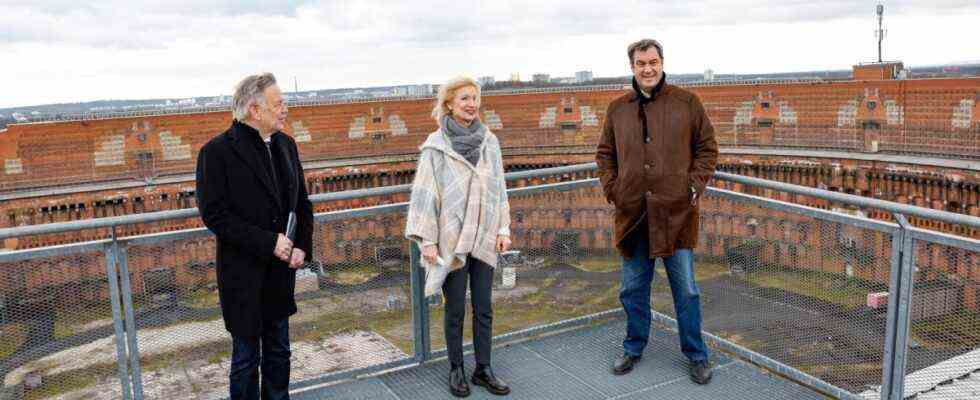As far as the “activities framework” of the city homeland conservator is concerned, it is clearly regulated in Nuremberg. According to the statute, the home caretaker advises and supports the city “particularly in questions of monument preservation and monument protection”. He also presents his opinion to the city councilors upon request. The city of Nuremberg, in turn, must “give him the opportunity to express his views in good time” in all cases relating to monument protection.
Sure thing actually. Only in what is perhaps the most important monument protection issue in the city – namely the question of whether an alternative opera venue should be built at the former Nazi congress building – the position of the incumbent city heimat keeper is not familiar. Why it is like that? The art historian Claudia Maué replies that she was actually not consulted on the question: “In retrospect, I’m surprised that they should have asked me.”
But why, of all people, was the city’s specialist responsible for monument protection apparently not asked when it came to the future of the site, which has been under monument protection since 1973? Don’t know, Maué replies. However, she assumes that this is “no coincidence”. After all, the cooperation in other monument protection matters is excellent. She can only explain the fact that this is not the case in this internationally recognized issue with “political reasons”; that they just wanted that project – a replacement opera building on ex-NS grounds – “simply absolutely”.
The home nurse is now considering whether she should have taken a public stand on her own. On the other hand, there was that statement from the State Office for the Preservation of Monuments in October 2021, which left little to be desired in terms of clarity. “Any furnishing of this room, which is so expressive in itself,” diminishes the message of the Nazi building courtyard, it said. And that all monument preservation concerns could only be shelved, insofar as only a temporary structure was planned anyway. Maué thinks this paper is “great”, written by a professional who works carefully and thinks carefully about what she writes. She, Maué, assumed that everyone on the city council would use the paper as a basis for decision-making in front made available for voting last December. But it wasn’t. The city argues that everyone on the city council got the paper, of course be able – if they had requested it.
Maué found the statement that everyone “could have been expected to read it” ran four pages. In the meantime, of course, there have been two statements from the state office. That written by the chief conservator from October. And an oral statement from her boss, the general conservator Mathias Pfeil, who was quoted in the dpa on February 11 that they were not demanding the dismantling of the new building. The fact that the office is only putting technical concerns on hold because of the announced dismantling is a “statement that I no longer carry today,” explained Pfeil – four months after the statement from his house.
The head of the office was quoted exactly on the day that Prime Minister Markus Söder (CSU), alongside Nuremberg’s Mayor for Culture Julia Lehner (CSU) and Vice President Karl Freller (CSU), announced during a visit to the NS Congress Hall that it had “no sense” to demolish a replacement venue after a few years. In other words, the cultural building will probably be permanent.
Maué is “very unhappy” with all of this – she almost threatens to get “grey hair” about it. But shouldn’t it still be clear in the urban discourse? “I’ve given up,” she explains, “I don’t think there’s anything else that can be done.”

